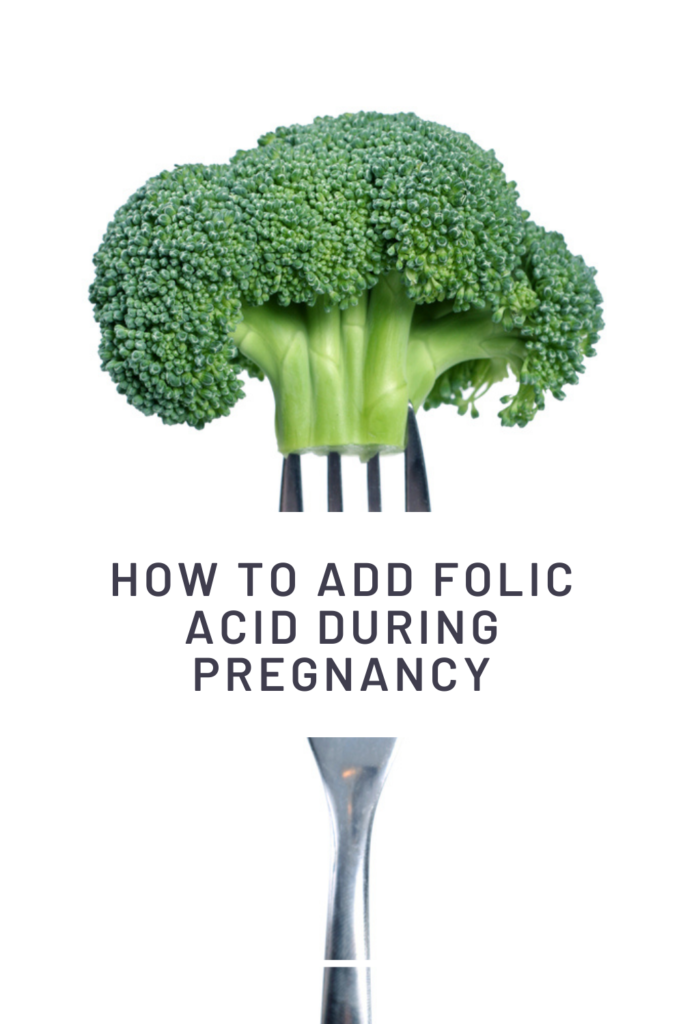What’s the deal with folic acid? Many women know they are supposed to start taking it but don’t fully understand why. Should women take it before pregnancy or just during? Is it safe for breastfeeding? Dr. Linda Ducholke, a mother of two, has been a successful Family Practitioner with Obstetrical privileges for the past 20 years. She weighs in on this question for us. Folic acid is a B vitamin and has been found to be important during the process of neural tube development in the fetus. (The neural tube includes the spinal cord and brain). If folic acid is taken during the very first part of pregnancy, the incidence of neural tube defects decreases significantly. Therefore doctors recommend that all women take folic acid. In the perfect world they should start it three months before conception and take it for at least the first 6 weeks after conception has occurred. It is not necessary to take while you are breastfeeding but if you do, it will not harm you.
According to Canada’s current nutrition guidelines, all women who could become pregnant should not only eat according to the food guide (as should we all), but also take a daily multivitamin containing 400 mcg (0.4 mg) of folic acid. At a minimum, start taking your supplement 3 months before you get pregnant if you can. It’s also very important to not scarf down the vitamin and exceed the 400 mcg per day, as too much folate has been liked to adverse effects. Continue taking this supplement throughout your pregnancy to help meet your need for folic acid and other nutrients like iron. The vitamin should contain B12 too.
- If you have had a pregnancy affected by a NTD or have a family history of this problem, you should see your doctor. You may need to take a higher dose of folic acid.
- If you have diabetes, obesity or epilepsy, you may be at higher risk of having a baby with a NTD. See your doctor before planning a pregnancy.
What Foods Contain Folate?
In a perfect world we would all be able to get each and every vitamin by eating enough natural, healthy foods. It’s advisable to take a multi-vitamin just in case, but also try and pack some of these into your diet wherever possible. You can add folate (vitamin B9) to your diet by eating a variety of foods including:
- Edamame
- Lentils
- Asparagus
- Spinach
- Broccoli
- Mangoes
- Avocados
- Sweet Corn
- Oranges
- Lettuce
Folic Acid and Breastfeeding
According to the NHS, folic acid is not harmful to breastfeeding babies. If your baby is premature, you should check with your doctor first.
Pin it for later!




[…] take fries with that butter chicken, please. Oh, and some M&Ms too. I’d check our folic acid article just in case. 18. Heartburn sets in. 19. Constipation, yeah. 20. You don’t have to […]
[…] women of any age who do not have enough folic acid in their diet are more likely to have a child born with Down syndrome. A lack of folic acid in the […]
we are planning to have a baby now. i stopped taking my birth control pills last aug. 10. while waiting for my doctor’s appointment on sept. 12, i am taking over the counter folic acid 1mg, centrum forte which has 0.6mg of folic acid and omega 3 supplement and vitamin c. are all my over the counter vitamins and supplements taken ok?
[…] take fries with that butter chicken, please. Oh, and some M&Ms too. I’d check our folic acid article just in case. 18. Heartburn sets in. 19. Constipation, yeah. 20. You don’t have to […]
[…] with your doctor or midwife to arrange your prenatal care, start taking your prenatal vitamins with folic acid, and think of a good way to break the news! If it’s negative, wait another week and test […]